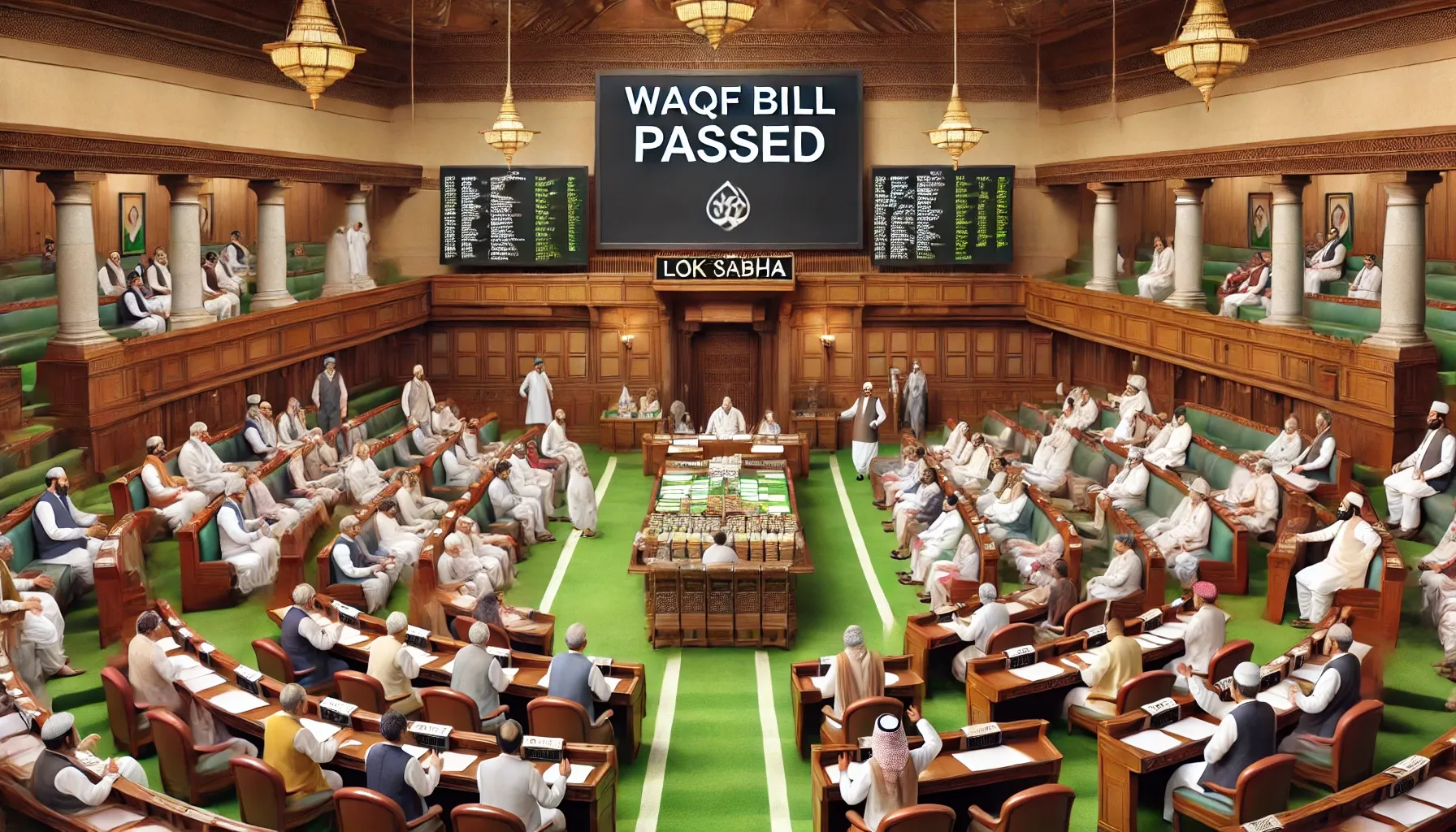UPSC
The Hindu Briefs
Waqf (Amendment) Bill 2025: Reforming Property Governance in India
Last Updated
3rd April, 2025
Date Published
3rd April, 2025
Share This Post With Someone

Published on April 2, 2025, in The Hindu, this article outlines the key provisions of the Waqf (Amendment) Bill, 2025, tabled in the Lok Sabha. It addresses reforms in the management of Waqf properties, aiming to enhance transparency and government oversight while sparking debates on religious autonomy and federalism. This is a critical topic for understanding governance, minority rights, and legislative processes in India.

Key Points
- Introduction in Parliament: The Waqf (Amendment) Bill, 2025, was tabled by Union Minority Affairs Minister Kiren Rijiju in the Lok Sabha on April 2, 2025, following recommendations from a Joint Parliamentary Committee (JPC).
- Objective: The bill seeks to amend the Waqf Act, 1995, to improve administration, ensure transparency, and resolve disputes over Waqf properties without interfering in religious practices, as assured by Home Minister Amit Shah.
- Historical Context: Waqf properties, rooted in Islamic tradition, are endowments for religious or charitable purposes, often lacking formal documentation, with their status historically validated by continuous communal use ("waqf by user").
- Abolition of "Waqf by User": The original bill proposed removing this doctrine, but the 2025 version retains strict criteria, requiring formal declaration for Waqf status, impacting undocumented properties like mosques and graveyards.
- Non-Muslim Inclusion: Non-Muslims can now be appointed to the Central Waqf Council, State Waqf Boards, and Waqf Tribunals, including as CEOs or government nominees, a move opposed by many Muslim MPs for diluting community control.
- Central Waqf Council Composition: The Centre can nominate three MPs (two from Lok Sabha, one from Rajya Sabha) to the council, without mandating they be Muslim, alongside senior officials and persons of national repute.
- Waqf Board Membership: State boards must include at least two women and two non-Muslims, aiming for inclusivity and gender representation.
- Waqf Creation Criteria: Only individuals practicing Islam for at least five years can dedicate property as Waqf, reinstating pre-2013 rules to ensure intent and authenticity.
- Inheritance Rights: Women must receive their inheritance share before a property is declared Waqf, with special provisions for widows, divorced women, and orphans.
- Government Property Disputes: Properties identified as government-owned but claimed as Waqf will no longer be recognized as such; ownership will be determined by the local District Collector or an officer above that rank.
- Dispute Resolution Shift: Decisions on Waqf property disputes move from Waqf Tribunals to senior government officials (e.g., District Collectors), with appeals now directed to High Courts instead of tribunals.
- Waqf Tribunal Reforms: Tribunals will consist of a District Judge, a government officer (Joint Secretary rank), and a nominee from the State Public Service Commission or equivalent, enhancing judicial oversight.
- Registration and Technology: A centralized portal will streamline Waqf property registration and management, integrating technology for transparency and efficiency.
- Repeal of 1923 Act: The Mussalman Wakf Validating Act, 1923, is repealed to eliminate legal overlaps and ensure consistency under the 1995 Act.
- Opposition Criticism: The INDIA bloc, including Congress and TMC, labels the bill unconstitutional, arguing it violates religious freedom (Article 25) and property rights, and aims to polarize communities.
- Government Defense: Amit Shah and Kiren Rijiju assert the bill focuses on property management, not religion, correcting past overreach by the UPA government, which gave Waqf laws overriding power.
- Passage in Lok Sabha: After a 12-hour debate, the bill passed on April 3, 2025, with 288 votes in favor and 232 against, moving to the Rajya Sabha for further discussion.
Glossary
- Waqf: Property endowed by Muslims for religious or charitable purposes under Islamic law.
- Waqf Act, 1995: Legislation governing the administration of Waqf properties in India.
- Central Waqf Council: National body overseeing Waqf management and policy.
- Waqf Tribunal: Adjudicatory body for resolving Waqf-related disputes, now reformed.
- Waqf by User: Doctrine recognizing properties as Waqf based on long-term communal use.
- District Collector: Senior administrative officer tasked with resolving Waqf property disputes.
- Joint Parliamentary Committee (JPC): Parliamentary panel that reviewed and proposed amendments to the bill.
- Article 25: Constitutional provision guaranteeing freedom of religion, cited in opposition critiques.
- High Court: Appellate authority for Waqf disputes under the new bill.
- INDIA Bloc: Opposition coalition opposing the bill on constitutional grounds.
Link To The Original Article – https://www.thehindu.com/news/national/what-are-the-key-changes-proposed-in-the-new-waqf-bill-explained/article69402993.ece

UPSC
Indian Express Concise